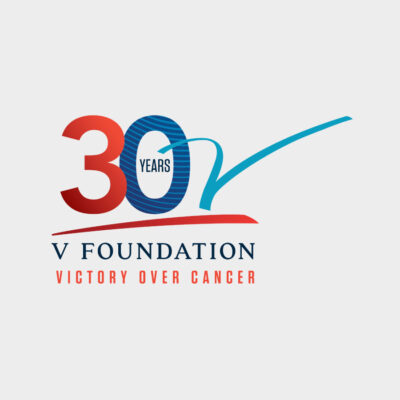The V Foundation for Cancer Research, founded by legendary basketball coach Jim Valvano, has granted $1.6 million to four Dana-Farber investigators conducting innovative research aimed at improving early detection and overcoming treatment resistance for a variety of challenging cancers.
Dipanjan Chowdhury, PhD, and Srinivas Viswanathan, MD, PhD, are using their V Foundation awards for research that could lead to new methods of early detection, interception, and prevention. Chowdhury, the Svanberg Family Chair at Dana-Farber, is developing a microRNA-based blood test to identify individuals at elevated risk of developing ovarian and breast cancers and to predict when their cancer could occur. This test could revolutionize early detection and dramatically improve survival, particularly for ovarian cancer, which is usually not treated until late, advanced stages since no early diagnostic test exists.
Viswanathan is studying translocation renal cell carcinoma (tRCC), a rare, often misdiagnosed form of kidney cancer, to establish a new detection method based on its unique gene expression pattern. This work aims to uncover tRCC’s key molecular characteristics and advance the accuracy and ease of diagnosis, which could facilitate earlier interventions that may cure this aggressive cancer before it spreads.
In the realm of innovating new and improved therapies, Pratiti (Mimi) Bandopadhayay, MBBS, PhD, and Mark Awad, MD, PhD, are dedicating their efforts to some of the most challenging and drug-resistant cancers—childhood gliomas and non-small cell lung carcinoma (NSCLC), respectively. Gliomas are the most common cause of cancer-related death in children, and treatment options remain limited. With the goal of finding new targeted therapies for this devastating disease, Bandopadhayay will use her V Foundation award to determine how FGFR gene mutations cooperate with other activating mutations to drive pediatric gliomas. This research aims to identify new genetic targets for combination therapies that will enhance the effectiveness of FGFR inhibitors and overcome FGFR-inhibitor drug resistance which occurs commonly in patients with glioma.
Awad, clinical director of the Thoracic Oncology Treatment Center at Dana-Farber, is developing a cancer vaccine for ALK-mutated NSCLC in patients whose cancer has developed resistance to ALK-inhibitor drugs. Although these drugs are initially effective, the cancer frequently becomes resistant, leaving patients with few treatment options. The vaccine is designed to cause a patient’s immune system to attack the cancer cells and could become an effective new treatment that will help these patients live longer.
“Our mission is funding game-changing research to accelerate victory over cancer and save lives,” shared Susanna Greer, PhD, chief scientific officer of the V Foundation. “These four tremendous Dana-Farber investigators illustrate our commitment to funding the best and brightest scientists because today’s cancer research is tomorrow’s victory.”
For more stories about the impact of philanthropy at Dana-Farber, please visit DanaFarberImpact.org.



